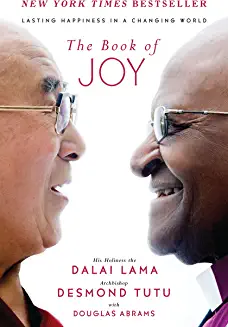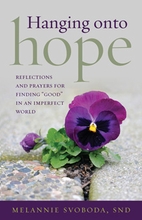Recent headlines raise questions about a wide range of controversial issues such as racism, gun control, religious freedom, ageism, immigration laws, violence against women, etc. This got me to thinking about a phenomenon that underscores many of these issues: our use of stereotypes.
From my file I pulled an article on stereotypes by the renowned journalist Walter Lippman. Here’s the surprise: it was written in 1961! Despite its antiquity, it is still (I think) one of the best things written on the topic.
The world is a vast and complex place, says Lippman. And each of us lives in only a small part of that world, moves in a small circle, and knows only a few people intimately. Inevitably our opinions cover a wider area and larger number of things than we directly see or experience. We may have opinions about China, for example, though we may never have been there. We may have opinions about Muslims though we may never have spoken with one. We form many of our opinions by piecing together what others have reported and/or what we ourselves can imagine. Often we resort to stereotypes. A stereotype is a mental image or opinion we have of someone or something. As such, it is a generalization or an overly simplified representation of the thing, person, issue, or event.
Realistically, we do not have enough time to experience everything ourselves. Similarly it would be far too exhausting to experience everything freshly and in detail  every single time. So we resort to types and generalities, that is, stereotypes, to navigate our world. Here’s an example. You are about to meet a nun you’ve never met before. Immediately and unconsciously you begin to think of her in terms of your own experience with other nuns (if you’ve had any) or in terms of stories (whether positive, negative or neutral) you’ve heard or read about nuns. Even before this particular nun has uttered a word, you begin to size her up based largely on your stereotype of nuns—until she says or does something that challenges your stereotype. But if you really wanted to know this particular nun, you (and she) would have to invest considerable time and energy.
every single time. So we resort to types and generalities, that is, stereotypes, to navigate our world. Here’s an example. You are about to meet a nun you’ve never met before. Immediately and unconsciously you begin to think of her in terms of your own experience with other nuns (if you’ve had any) or in terms of stories (whether positive, negative or neutral) you’ve heard or read about nuns. Even before this particular nun has uttered a word, you begin to size her up based largely on your stereotype of nuns—until she says or does something that challenges your stereotype. But if you really wanted to know this particular nun, you (and she) would have to invest considerable time and energy.
We use stereotypes all the time. If I say cat, hyena, the NRA, or New York City you have stereotypes. We do the same with issues: abortion, women priests, gay rights, fracking, gun control. Now read this list of people slowly, trying to detect the images or feelings you associate with any of them: lawyer… teenager… priest… Latino… politican… professional football player… janitor… grandma. By sensing your emotional reaction (or non-reaction) to various words—especially those words that refer to things or people you have had little direct experience with—you can begin to detect the role stereotypes might be playing in your life.
What matters the most, says Lippman, is not that we use stereotypes. For we all do. But what matters the most is “the gullibility with which we employ them.” In other words, do we cling to our stereotypes and assume they accurately represent reality, or can we hold them lightly and be willing to modify them gladly–especially as new experiences and new information come our way?
Modifying our stereotypes is not easy. Why? Because we feel at home in our image of the world–an image supported by our stereotypes. Also we can become so wedded to our opinions that they almost define who we are. Little wonder, then, that disturbing a stereotype can seem “like an attack upon the foundations of the universe.”
Jesus was good at disturbing peoples’ stereotypes. He makes the stereotypical bad Samaritan the hero of his parable. He praises the stereotypical cruel, pagan Roman soldier for great tenderness and faith. Jesus himself was stereotyped. Even before Nathaniel meets Jesus, he asks, “Can anything good come from Nazareth?” Later Jesus was criticized for eating with sinners, touching lepers, and speaking openly with women on the streets–things a stereotypical holy man should not do. As he hangs on the cross, some bystanders cry out to him: “If you are the Messiah, save yourself !” But Jesus stays on the cross and surrenders himself over to death—and to Abba—showing us that the real Messiah is one filled with selfless love and trust in God.
Let us end this reflection on stereotypes with this short prayer:
Jesus, help me to become more aware of the stereotypes I have
and how they came to be. Help me to willingly seek new experiences
and new information as I journey through life,
so that I might hold my stereotypes lightly
and modify them gladly. Help me to be free from
the stereotypes others may have of me. Jesus, Totally Free One, walk with me
in my never-ending quest for Truth and Love. Amen.
What has been your experience with stereotypes?
Think of a time when you modified one of your stereotypes? Why did you do so?







6 Responses
Sister Melannie,
What a wonderful reflection on stereotypes! Very eye opening reflection.
My biggest experience with stereotyoes was with a close friend. One of my dearest friends came out of the closet and told me he was gay a while back. This was many years into our friendship. Suddenly, all those stereotypes about being gay were modified because it was my friend revealing himself to me. A learning experience for both of us.
Kathleen
Dear Kathleen, Your example is a perfect one to illustrate how stereotypes are modified. Sometimes one experience can make a stereotype crumble. Thank you for sharing with us your experience! Melannie
Dear Melannie
I did enjoy my first Sunflower Seeds email.
This gave me time to reflect on all the people you suggested in the stereotype list. It was so good to think about those people in my life. Thank you
Dear Ann, Welcome to my blog! I’m so glad you were able to take time to reflect on the people in your life mentioned in this blog. Thanks for writing! Melannie
Sr. Melannie,
I sat with a small group of women.
One spoke up…
“I can’t stand kind people.”
My stereotype button flashed on
… “WARNING! WARNING!”
Later I found out,
as a child, her mother, a drug addict,
would lock her out of the house.
I learned that my quick judgments,
leave little room
for healing and change,
in me, in others, in this world.
When I turn in prayer, to God
I pry open a space for light
and compassion.
Marian
Thanks for sharing the Light!
And thank you, Marian, for sharing YOUR light! I especially liked these words: “…my quick judgments leave little room for healing and change.” Amen to that! Thanks again! Melannie